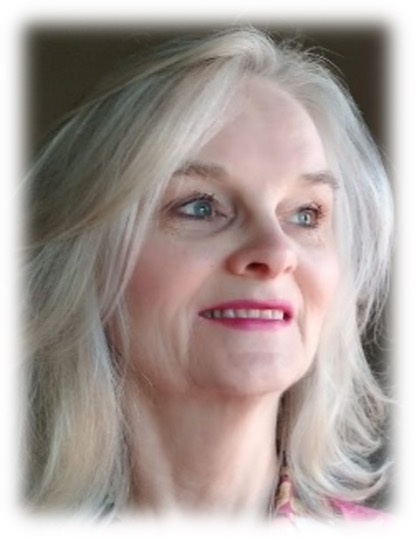What the Nigerian Church Is Teaching the World about Suffering and Sovereignty
Guest Commentary


Audio By Carbonatix
By Judy McEachran, Crosswalk.com
On November 1, 2025, former President Donald Trump made an extraordinary announcement: he ordered the U.S. Department of Defense to prepare for possible military action against Nigeria over what he called "large-scale killing of Christians."
He suspended U.S. aid to Nigeria and designated the nation a "Country of Particular Concern," later adding: "Christianity is facing an existential threat in Nigeria. Thousands of Christians are being killed. Radical Islamists are responsible for this mass slaughter."
Nigerian leaders rejected the characterization. They insist the violence stems from complex, interconnected issues—terrorism, ethnic tensions, and resource conflicts—affecting both Christians and Muslims across the nation.
Yet the facts paint a grim picture. Entire villages have been burned to the ground. Worshipers have been killed mid-service. Thousands have been displaced as Islamist militants sweep through northern and central regions with increasing boldness. The White House acknowledged a surge of anti-Christian violence across sub-Saharan Africa, where jihadist movements exploit political instability and porous borders.
In June, militants attacked the home village of a bishop just days after he testified before the U.S. Congress, killing more than twenty people. In Plateau and Benue States, similar massacres have left hundreds dead—survivors recounting gunmen shouting "Allahu Akbar" as they systematically torched churches and homes.
Pope Leo and the U.S. State Department have condemned the recent massacres, warning that the crisis could spread beyond Nigeria's borders if left unchecked.
Bishop Stephen Dami Mamza of Yola confirms the severity: "Here in Nigeria, the persecution is more intense now than ever."
Pastor Gah Yohanna Sunday, serving in Plateau State, shared: "I prayed for God to reveal my purpose and role in His kingdom... then I understood my calling as a pastor." His testimony, like countless others, reveals that this persecution is not merely political—it is profoundly spiritual.
God’s Purposes in Persecution: Ancient Lessons for a Present Crisis
The persecution of Christians is woven throughout history. From Rome's execution of early believers to medieval pogroms, from the Holocaust to today's threats against believers worldwide, God's people have endured relentless assault. The silence of some institutions—universities, political movements, even churches—in the face of such injustice echoes through generations.
But Scripture reveals a pattern in how God works through persecution. The Assyrians conquered Israel as an instrument of divine discipline, yet God promised to judge Assyria for its pride: "When the Lord has finished all His work against Mount Zion and Jerusalem, He will punish the king of Assyria for the willful pride of his heart" (Isaiah 10:12).
During the Babylonian exile, God’s people learned faithfulness in captivity. Jeremiah urged them to “seek the peace of the city... and pray to the Lord on its behalf” (Jeremiah 29:7), while Daniel’s steadfast witness shone in a foreign court. Even Nebuchadnezzar’s humbling showed that no oppressor stands beyond God’s reach.
Most striking of all, God extended mercy to Nineveh. Though notorious for cruelty, they repented—and He forgave (Jonah 3). Through these accounts, we see that God can use even the wicked to refine His people, yet His heart still calls all to repentance and redemption.
These ancient lessons endure for believers today:
-Discern God's sovereignty even in suffering, trusting His purposes beyond our understanding.
-Pursue justice with mercy for both victim and oppressor alike.
-Pray without ceasing for the persecuted and for those who persecute them.
God's purpose is not only to protect His children but to draw all hearts—victim and aggressor alike—into His redemption.
The Limits of Military Power
The crisis in Nigeria mirrors ancient patterns of power and pride. Just as empires once oppressed God's people, modern governments and militant groups often serve as instruments of destruction—or unwitting agents of divine discipline. Yet ultimate authority belongs to God alone.
Military threats, however well-intentioned, can never replace God’s justice. Psalm 2 poses the timeless challenge: “Why do the nations conspire and the peoples plot in vain? The kings of the earth rise up and the rulers band together against the Lord…” Yet no human power, no authority, no scheme can thwart God’s eternal plan—His purposes will prevail, and His sovereignty endures forever.
History proves that politics cannot protect the persecuted Church. True hope lies not in might or diplomacy, but in the Church being who God called her to be—a light to the nations, fulfilling the Great Commission (Matthew 28:19–20) and interceding with faith that God still reigns.
This does not call for passivity, but for spiritual discernment: to act with courage and compassion, knowing that lasting change flows from transformed hearts, not imposed force.
When Nations Rage, God Still Rules
The persecution in Nigeria calls the global Church to move beyond awareness into action—to be the hands and feet of Jesus to those who suffer in His name.
Support Trusted Ministries
Partner with organizations with proven records of serving the persecuted Church—such as Open Doors, Voice of the Martyrs, Barnabas Aid, and Release International. These ministries provide more than food, shelter, and medical care; they offer spiritual encouragement and a reminder that suffering believers are not forgotten by the global body of Christ. Through these channels, we can amplify the voices of local Christians, educate others about their plight, and extend the radical forgiveness Christ modeled. As Paul wrote, “Bless those who persecute you; bless and do not curse” (Romans 12:14).
Pray Fervently
"Remember those in prison as if you were together with them in prison, and those who are mistreated as if you yourselves were suffering" (Hebrews 13:3). Intercede regularly for Nigerian believers by name when possible. Pray for their protection, their witness, and their perseverance. But don't stop there—pray also for their oppressors, that hearts of stone might become hearts of flesh (Ezekiel 36:26).
Live Faithfully
Nigerian Christians continue to worship under constant threat. Hanen in Iraq said: “I was the only Christian in my university class and tried to show the love of Jesus to my classmates. When everyone was giving each other descriptive names at the end of the year, I was given the name ‘salt of the class.’ I remembered what Jesus said about salt in the Bible and was happy that my classmates gave me that name.” Her example challenges comfortable Western Christianity.
This is not passive acceptance of evil. It is active engagement rooted in the character of Christ—confronting injustice while refusing to become like the oppressor.
The Gospel Spreads through Suffering
Throughout Church history, persecution has never silenced the gospel—it has multiplied it. The apostles were martyred, yet the Word of God grew and spread. The early Church faced the Roman arena, yet Christianity conquered the empire not through the sword but through the blood of martyrs and the power of resurrection hope.
Hajaratu from Nigeria told Open Doors: "Trusting God's favor in this, my darkest night, was my only option. When I lost my baby daughter in the forest, I held on to Jesus' words." Her testimony joins a chorus spanning two millennia—believers who discovered that Christ is most real when everything else is stripped away.
Paul warned Timothy: "Everyone who wants to live a godly life in Christ Jesus will be persecuted" (2 Timothy 3:12). This is not pessimism but realism. In a fallen world hostile to God's kingdom, faithful witness inevitably brings opposition. Yet with persecution comes supernatural grace. The heroes catalogued in Hebrews 11 endured torture, mockery, flogging, chains, imprisonment, and execution—yet the writer concludes that "the world was not worthy of them."
Ryan Brown of Open Doors USA warns of the escalating crisis: "Across Africa, violence against Christians intensifies daily—believers burned alive, entire communities displaced. Sixteen million people have fled their homes. Yet little is heard in mainstream media or even in many churches. The global body of Christ must not turn away from its suffering members."
The courage of the Nigerian Church rings out as a clarion call to believers everywhere. When Christians worship knowing militants may strike, when parents raise their children in faith despite the danger, when pastors preach after burying their own flock—this is the soil where revival takes root. Their steadfast witness reminds us that life is but a vapor (James 4:14) compared to eternity with Christ, and our mission remains the same: to live out the gospel—personally, corporately, and to the ends of the earth, “that none should perish” (2 Peter 3:9).
Where Justice and Mercy Meet
The persecution of Christians in Nigeria exposes both the sorrow of a fallen world and the steady hope of God’s redemptive plan. Villages burned. Families scattered. Churches reduced to ashes. Believers slain for no crime but bearing Christ’s name—yet even in the ruins, His light refuses to die.
To stand with the persecuted is to reflect Jesus—not through slogans or politics, but through love that acts, prayer that perseveres, and courage that costs something—maybe everything.
Change begins quietly, like the lighting of a single candle. One person prays daily for Nigerian believers. Another gives sacrificially. A church adopts a persecuted community, learning their names and stories. A family speaks of faith at the dinner table, teaching children to prize faithfulness over comfort.
One light becomes two, then ten, then a multitude—until the darkness is pierced by a thousand points of Christ’s glory. This is how the Kingdom advances—not through military power or might, although that may be helpful, but through ordinary believers living extraordinary faith. That is the stuff of spiritual warfare.
“The Lord is close to the brokenhearted and saves those who are crushed in spirit” (Psalm 34:18). This promise sustains those who have lost everything but Christ. True power is not found in swords or politics, but in the Cross—where justice and mercy meet, where death was conquered once for all.
As Tertullian wrote, “The blood of the martyrs is the seed of the Church.” That seed still grows. So we live, go, teach, and love—one by one, nation by nation—until the Light of the world reigns forever as King of all.
Photo Credit: ©Getty Images/Manuel Augusto Moreno
 Judy McEachran is a passionate worshiper and seasoned pastor who brings together her love for music and ministry to inspire and uplift others. An ordained pastor and accomplished musician, she has spent years encouraging believers through her heartfelt sermons and soul-stirring music. After serving congregations in the Midwest, she and her husband, who was also a pastor, relocated to Arizona upon retirement. Deeply moved by God's unwavering love and His faithfulness through the years, Judy writes from a pastor's heart to encourage and strengthen faith in a believer's walk with Jesus. With the support of her husband, sons, and their families, Judy continues to use her gifts to glorify God. Her YouTube channel, www.youtube.com/@JudyMcEachran, features music that invites listeners to experience the Lord’s presence in a profound and personal way.
Judy McEachran is a passionate worshiper and seasoned pastor who brings together her love for music and ministry to inspire and uplift others. An ordained pastor and accomplished musician, she has spent years encouraging believers through her heartfelt sermons and soul-stirring music. After serving congregations in the Midwest, she and her husband, who was also a pastor, relocated to Arizona upon retirement. Deeply moved by God's unwavering love and His faithfulness through the years, Judy writes from a pastor's heart to encourage and strengthen faith in a believer's walk with Jesus. With the support of her husband, sons, and their families, Judy continues to use her gifts to glorify God. Her YouTube channel, www.youtube.com/@JudyMcEachran, features music that invites listeners to experience the Lord’s presence in a profound and personal way.


























